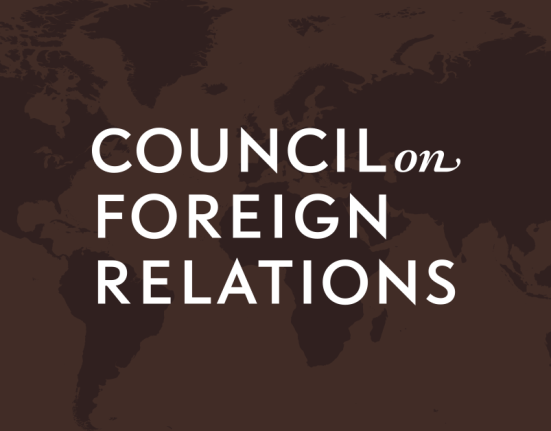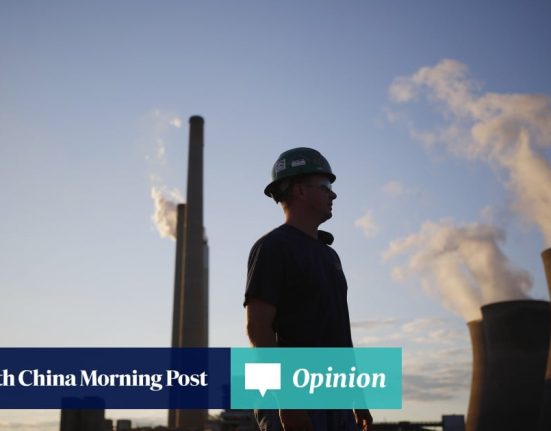The Greyparrot Analyzer at work sorting waste
Impact investing continues to grow and evolve, driven by the next generation of wealth owners who desire to generate positive social and environmental change alongside financial returns; something that is becoming ever more possible and attainable. This is partly due to regulation, a better understanding of what’s possible, more consensus on best practices and technology playing an enabling role.
According to a recent report by UBS, the impact investing market has seen substantial growth, underscoring its increasing importance among family offices and high-net-worth individuals.
However, embarking on this journey can be daunting, confusing and jarring, given the diverse generational dynamics, varying value sets, and myriad investment options available. According to data from Simple, while many family offices aren’t willing to consider climate change investments, those that do would only proceed if an investment were backed by similarly-mind families – meaning those that take the charge have the great responsibility of executing ventures with passion and purpose, and delivering results.
While a majority of family offices won’t consider climate change investments right now, those that … [+]
The Journey Into Impact Investing
Setting an impact investment course along with others who have made this journey is one way to help navigate common pitfalls. Michael Smith, General Partner and Co-Founder of Regeneration.VC, comes from an entrepreneurial background. His journey into impact investing started after his last exit.
“After selling my company, I saw that despite donating time and money, things were getting worse for our planet. I realised a more aligned and catalytic approach was required,” Smith outlined.
Frustration with the status quo often leads investors to define their values and seek capital alignment around key issues. Many impact investors stress the importance of finding one’s true calling and committing deeply to it – just like Smith – in order to collaborate with philanthropic partners to catalyse significant change.
“It’s essential to identify your true calling and go deep. For me, it was the environment; others might find their passion in education or healthcare,” shares Smith.
With a clearly defined focus on climate, the next step was to launch Regeneration.VC, (RVC) a fund that opened up for external LPs to scale the impact of capital deployed to $45M for Fund 1 and targeting $150M for Fund 2. The fund focuses on climate technologies in underfunded areas within consumer industry supply chains such as apparel, food, packaging, and electronics that represent roughly 45% of global emissions and 80% of biodiversity loss.
A VC vehicle that sits outside a family office provides more than just a structure. There’s space for collaboration with other impact investors from knowledge sharing to also co-investing in opportunities.
One such collaboration for Smith and Regeneration.VC was with One Small Planet, an impact investment firm, founded by Will Peterffy in 2020 (son of billionaire Thomas Peterffy, Chairman at Interactive Brokers).
When they began their impact journey, it was through a joint investment into Cruz Foam, a company producing biodegradable foam alternatives. “Cruz Foam was our first joint investment, bringing together an impact-focused family office with our venture fund. Our mutual focus on significant environmental impact alongside financial returns showed us the potential of further collaboration,” says Smith.
Jack Wielebinski, CIO at One Small Planet, brings a unique perspective as he integrates traditional venture fund principles with a mission-driven approach.
As Wielebinski outlined, “The way I look at investing is that it’s not just about generating ROI; it’s about solving a real problem in the world.”
Both Peterffy and Wielebinski’s background and passion for the environment and indigenous rights have shaped One Small Planet’s investment strategy, focusing on underfunded areas that promise significant impact. Wielebinski also stresses that as an impact investor it’s important to focus on under-funded areas; adding that “nearly 90% of climate finance goes towards energy transition and almost half of that is towards e-mobility”.
Overcoming Challenges in Impact Investing
Intergenerational Dynamics And Value Alignment
Starting an impact investment journey can be daunting, particularly when navigating the diverse values and expectations of different generations within a family office. Smith suggests beginning with a deep exploration of one’s priorities, such as education, healthcare, or the environment, and engaging in a learning journey before deploying capital.
Accordingly, data from Simple highlights that most family offices similarly approach sustainable investments by exclusionary screening, rather than through ESG integration or impact investing.
Most surveyed family offices approach sustainable investments through exclusionary screening.
Wielebinski adds that family offices should make strategic decisions regarding stage, sector, and capital allocation. He highlights the importance of aligning returns with impact, using Cruz Foam as an example. This sustainable material innovator has demonstrated how private market deals, although requiring longer holding periods, can yield substantial impact and returns when aligned with the right incentives.
Collaborative Ventures: Regeneration.VC And One Small Planet
Cruz Foam, a company producing biodegradable foam alternatives, was the initial joint investment that brought Regeneration.VC and One Small Planet together. Smith’s family office was the preseed investor, followed by Regeneration.VC at the seed stage, and eventually joined by high-profile investors like Leonardo DiCaprio. This collaboration laid the foundation for a strong partnership between the two firms.
According to Smith, “This investment showed the power of collaboration in achieving both financial returns and significant environmental impact.”
From this strong base, their partnership continued with investments in Greyparrot, a company that optimizes waste sorting with AI technology, in collaboration with Closed Loop Partners. This venture exemplifies how impact-driven technologies can address critical environmental challenges while providing attractive returns; the company recently announced an additional $11M top up following last year’s Series A round.
A future where entirely new solutions have a chance to thrive seem more likely according to Wielebinski, “There is a world where we can live a modern, dignified life, harmonizing people and planet, where everyone has enough and systems are not blindly extractive, and we all have a responsibility towards creating that future; One Small Planet, and many other organizations like RVC are all focused on catalyzing that brighter future.”
Advice for Aspiring Impact Investors
For those new to impact investing, Smith and Wielebinski shared three key tips to help navigate this evolving landscape.
1. Choose The Right Investments And Focus On What You Know
Smith emphasises the importance of leveraging your unique insights and expertise when selecting investments. “It’s very hard to be a direct investor unless you come from the industries you are investing in. Start with a fund that specialises in the area impact investing you are interested in or consider a fund-of-funds that covers the areas you care about,” he advises.
Wielebinski echoes this sentiment, highlighting the need for alignment with your mission. “If an investment doesn’t fit within your mission or what you’re trying to achieve, it’s better not to pursue it. Focus on where you can make the most difference.”
2. Network And Build Deal Flow
Building a strong network and deal flow is crucial for success in impact investing. Engaging with like-minded investors and industry leaders can provide valuable insights and access to unique investment opportunities. Wielebinski stresses the value of having a diverse network that includes not only other investors but also entrepreneurs, industry experts, and thought leaders.
This diversity can lead to a broader range of opportunities and a more comprehensive understanding of the market. Smith adds that fund mangers can also become knowledge partners, “Building relationships with fund managers is crucial. Map out what the relationship will look like, including the frequency of check-ins and learning events.”
3. Engage In Learning And Focus On Your Passion
Both Smith and Wielebinski stress the importance of embarking on a learning journey and focusing on causes you are passionate about. Smith advises that “…before deploying capital, go on a learning journey. Talk to others who have done this before and join ecosystems that can fast-track your understanding and impact.” Wielebinski encourages investors to identify their passions, whether it’s organic farming or indigenous rights, and commit to making a difference in those areas.
Making A Difference
Regeneration.VC is launching a new fund with a target size of $150 million, with One Small Planet as an anchor investor. One small Planet’s Fire Fund manages $100mm across all its investing vehicles, and separately disperses philanthropic capital through the Peterrfy foundation, focused largely on nature conservation by funding indigenous people communities and local communities.
However, it would seem that there is a need for a lot more. Wielebinski states, “We need a hundred other funds and more emerging managers to drive the innovation required to tackle the world’s pressing issues.”
The growth of impact investing reflects a broader recognition of the need for impactful, sustainable, and socially responsible investment strategies. With more wealth owners and family offices sharing their journeys, the industry might be able to attract more aspiring impact investors looking to make a difference.







